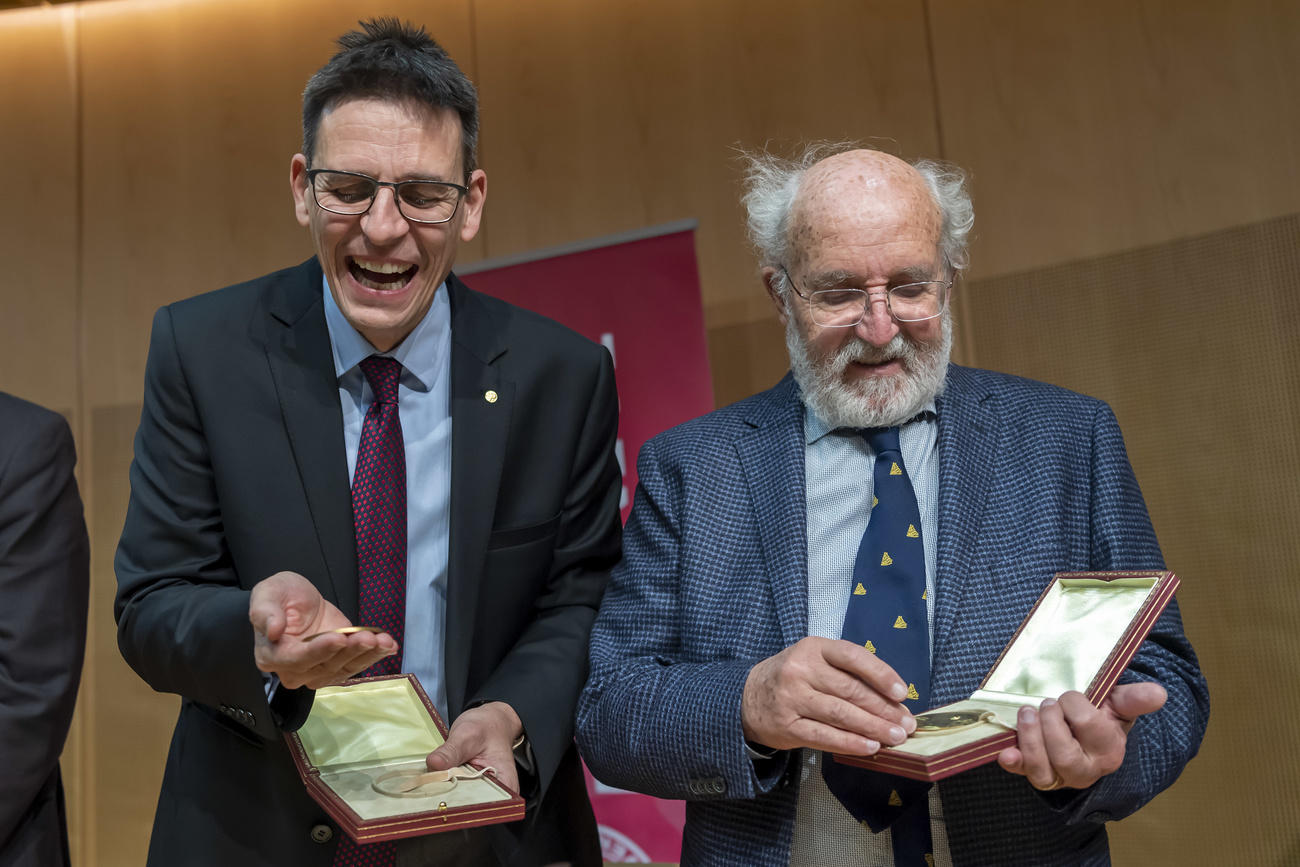
Two Swiss among favourites for Nobel Prizes

Nobel Prize week is upon us. It is therefore time to speculate on the possible winners, although these will only be revealed on October 6. For the Anglo-American data processing company Clarivate, two Swiss researchers are among the favourites.
+Get the most important news from Switzerland in your inbox
There are twenty-two names on this year’s list, ten active in the United States, three in France, two in Germany, Japan and Switzerland, and one each in Canada, China and the Netherlands. Looking back at previous predictions, 83 out of 450 prizewinners were correct since 2002, some even years after their citation. These include Swiss physicists Didier Queloz and Michel Mayor, who were awarded the prize in 2019, six years after they appeared on the list.

More
‘With the Nobel Prize, you’ve reached the Olympus of science’
An immune system alarm
Andrea Ablasser, a researcher at the Swiss Federal Institute of Technology in Lausanne (EPFL), is in the running in the medicine category for having discovered a central mechanism of the immune system, in collaboration with Glen Barber (Ohio State University/US) and Zhijian Chen (University of Texas/US). This is the so-called cGAS-STING signalling pathway. This functions as a kind of alarm when DNA enters a cell’s plasma in the event of infection, cancer or cellular stress, triggering an immune system response.
On the basis of these studies, carried out between 2008 and 2013, medicines have been developed that strengthen the immune defence against tumours or alleviate excessive inflammation in the case of autoimmune diseases.
+ The Basel researcher who triggered a longevity revolution
Towards the quantum computer
Daniel Loss (University of Basel) is listed with David DiVincenzo (Forschungszentrum Jülich, Uni Aachen, Germany) as a favourite in the field of physics. The two have proposed a concept for the realisation of a quantum computer. The first applications of this concept dating back to 1998 are already present, but this is a field that is just in its infancy.
Instead of bits (0 or 1), quantum computers use qubits (these can exist in a superposition of states, representing simultaneously 0 and 1 with a certain probability).
Adapted from Italian by DeepL/jdp
We select the most relevant news for an international audience and use automatic translation tools to translate them into English. A journalist then reviews the translation for clarity and accuracy before publication.
Providing you with automatically translated news gives us the time to write more in-depth articles. The news stories we select have been written and carefully fact-checked by an external editorial team from news agencies such as Bloomberg or Keystone.
If you have any questions about how we work, write to us at english@swissinfo.ch.

In compliance with the JTI standards
More: SWI swissinfo.ch certified by the Journalism Trust Initiative


























You can find an overview of ongoing debates with our journalists here . Please join us!
If you want to start a conversation about a topic raised in this article or want to report factual errors, email us at english@swissinfo.ch.